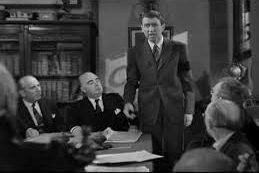Then I saw a new heaven and a new earth; for the first heaven and the first earth had passed away, and the sea was no more. And I saw the holy city, the new Jerusalem, coming down out of heaven from God, prepared as a bride adorned for her husband. And I heard a loud voice from the throne saying,
“See, the home of God is among mortals.
He will dwell with them;
they will be his peoples,
and God himself will be with them;
he will wipe every tear from their eyes.
Death will be no more;
mourning and crying and pain will be no more,
for the first things have passed away.”
And the one who was seated on the throne said, “See, I am making all things new.” Also he said, “Write this, for these words are trustworthy and true.” Then he said to me, “It is done! I am the Alpha and the Omega, the beginning and the end. To the thirsty I will give water as a gift from the spring of the water of life. Those who conquer will inherit these things, and I will be their God and they will be my children. – Revelation 21:1-7
John Donne was an English clergyman in the 16th and 17th centuries who wrote some of the most beautiful poems in our language. One of them rings especially true to what I want to say today. He wrote this, maybe you’ve heard portions of it in other venues:
No man is an island,
Entire of itself,
Every man is a piece of the continent,
A part of the main.
If a clod be washed away by the sea,
Europe is the less.
As well as if a promontory were.
As well as if a manor of thy friend’s
Or of thine own were:
Any man’s death diminishes me,
Because I am involved in mankind,
And therefore never send to know for whom the bell tolls;
It tolls for thee.
Ernest Hemingway wrote a book and the band Metallica wrote a song with the title being what the ending of that poem says – “for whom the bell tolls.” Surprisingly, that didn’t make it into our hymnal!
Ok, seriously, when Donne wrote about the tolling of the bells he was referring to funeral bells. In saying that “it tolls for thee,” Donne was expressing one of two things, or perhaps both: that when funeral bells were heard it was a reminder that we are all nearer to our own death each day; or he may have been saying what some of us believe to be true as humans – that all people are socially and spiritually interconnected. That is, when someone dies, a part of all of us dies. It might be seemingly apparent that the bell tolls for the one who is deceased, but make no mistake that it tolls for thee.
If you will pardon a bit of morbidity as I have already begun: I’ve spent some time among cemeteries in the last couple of weeks. It wasn’t due to some fetish or fixation about zombies or that I was hoping for some reason to have nightmares. The reason I went to the cemeteries is because I was looking for some spiritual inspiration and guidance on how best to conclude this four-week series we have spent at Jackson First UMC on “Four Parts Grace.” As I’m growing up, I’m coming to appreciate more and more that line in the Apostles’ Creed that says “I believe…in the communion of saints.” We are surrounded by what the author of Hebrews calls a “great cloud of witnesses” who are encouraging us onward along the journey of faith, pointing us toward the author of our life, and our faith, and our hope, Jesus Christ. I went to the tombs, in short, to look for a message of hope.
Dan Camp (Jackson FUMC’s Senior Pastor) and I spent a lot of time in conversation about each of these messages and one that we had the most difficulty assigning an adjective to was this one. We spoke in this series about the various ways that God’s unmerited favor, or what we call grace, comes to us and is revealed in us: in going before us and wooing us toward God’s self, or what we called prevenient grace; in pardoning us and welcoming us with open arms as we accept Christ’s saving offer, or what we called justifying grace; in changing us for the better, to make us more holy and pure like Christ, in going on to perfection, or what we called sanctifying grace. But if grace is eternal, what do we call that grace that welcomes us from the end of this life and carries us on into the next? John Wesley called this glorification, or glorifying grace. For that reason, we could simply leave it at that and just seek to unpack what that means. But we also talked about some synonyms and asked if there are other ways to describe this mode of grace – we’ve spoken of it at times as “final grace” or “dying grace.” While I always felt like those two words were somewhat close, I figured there was some better way of describing it. So, again, I went to the tombs. And on the headstones of many who now abide in the communion of saints, or what we call “The Church Triumphant,” were words that spoke of honor and mission, of fulfilled lives, and ultimately of triumphant hope…that is, that our grave is not the end, that death has not won and that its defeat is sure. That’s why I have come to call this grace that is yet to come “Triumphant Grace.”
A couple of weeks ago, on a brief visit to my family, I stopped by the place where my mother’s parents are buried in West Paducah. My granddaddy died in 1987, when I was six, 11 years before Papaw (my dad’s dad) died. My grandmother died when I was 16. They’re buried and on their tombstone, you will find these simple words – “God is Our Refuge and Strength.” I looked at others nearby and on one I found a peculiar message where another husband and wife were buried that said, “Death does not part us.”
When I got back to Jackson, I spent a couple of hours walking through Riverside Cemetery and discovered that I had parked immediately adjacent to the place where Bishop Isaac Lane was buried. He was the one after whom Lane College is named and was one of the founding members of the Colored Methodist Episcopal Church, what is now the Christian Methodist Episcopal Church, which was founded out of this very congregation (Jackson First UMC) and resides across the street at Mother Liberty CME Church. These words are inscribed at the place where he lay – “His philanthropy knew no race, and his ministry was to all mankind.” Sounds a bit like John Wesley’s well known motto: “The world is my parish.”
Relatives of Bishop Lane had these remarkable words upon their graves – James Franklin Lane, who died in 1944: “He lives on!! Immortalized by thousands as a world benefactor;” Mary Edna Johnson Lane: “She lives on! As a symbol of Christian living, and as an inspiration to future generations.” Some other messages of hope at Riverside – Mannie Cole, who died in 1911: “She lives with her Jesus, the lover of her soul”; Dr. Alexander Jackson, who died in 1879: “We shall meet again”; Lizzie Cartmell, who died in 1899 at the age of 46: “Her mother died when she was eleven years old, but her counsel and fine example were never effaced. She was educated at Salem, N.C., and was a devoted Presbyterian, her faith never faltering under any trial, and she lived and died with such perfect trust in God that we know that when the earthly house of her tabernacle was dissolved that she found a heavenly one waiting her”; Mary Jane Cartmell, who died in 1865: “Having faithfully performed her earthly mission, her pure spirit is gone to dwell in the bosom of her redeemer. Neither can she die any more for she is equal unto the angels”; Milton Brown, who died in 1911: “Not lost, but gone before”; someone with the last name Winham: “Her life was beautiful in ardent love, to all her family and all her friends; her charity akin to that from above, which to every human need extends.”
What will be our epitaph? How will we be remembered, in our living and in our dying? In 1650 and 1651, an English clergyman named Jeremy Taylor, influenced heavily by the Latin tradition known as ars moriendi (Latin for “the art of dying”) wrote a two volume set of devotional books called, The Rules and Practices of Holy Living and Holy Dying. These writings were so influential upon the mind and heart of our movement’s founder, John Wesley. Perhaps most helpful for us to hear as we think about the triumphant grace that greets us at the end of this life and carries us onto the next are the words that John Wesley spoke upon his deathbed. Hear these words of a witness to John Wesley’s last moments:
we hoped that if he had anything of moment on his mind, which he wished to communicate, he would again try to tell us what it was, and that either Mr. Horton, or some of those who were most used to hear our dear Father’s dying voice would be able to interpret his meaning; but though he strove to speak, we were still unsuccessful. Finding we could not understand what he said, he paused a little, and then with all the remaining strength he had, cried out, “The best of all is, God is with us”; and then, as if to assert the faithfulness of our promise-keeping Jehovah and comfort the hearts of his weeping friends, lifting up his dying arm in token of victory and raising his feeble voice with a holy triumph not to be expressed, again repeated the heart-reviving, words, “The best of all is, God is with us!”
My Papaw was alone in a field building a fence around some hay bales (the very ones seen in the picture on this post) on a hot August day in 1998 when his earthly life came to an end. Twenty-one years prior he had had a massive heart-attack; thirteen years prior his and my father’s business had gone under and he broke his back as he fell from a piece of farm equipment; after that accident, he was offered a job at the Kentucky Department of Agriculture, where he worked in downtown Paducah, Kentucky until he retired in 1995.
But retirement wasn’t really in Papaw’s vocabulary. His heart was in his faith in Christ and devotion to living that faith out; his hands knew not of prolonged rest. He found fulfillment in close proximity to working in the dirt, the earth, and the care of his livestock. That August day, he was alone in the field, and by appearances knew his time had come: he took off his glasses, put them in his shirt pocket, grabbed his hammer in one hand and a fence post in the other, and lay down and breathed his last. That was his legacy – a legacy that proclaims: “Until the kingdom comes in fullness that we read about in the closing chapters of Revelation…until that day, I will work for that glorious day.”
And here is where the good news of triumphant grace meets us this day – in the promise and hope of a new heaven and new earth as John describes for us in Revelation 21. This hope is not a mere wish, but a confident assurance that death has lost its sting and victory belongs to life. It is based on nothing else than the resurrection of Jesus the Christ, which foretells our own resurrection.
If we can say confidently with the Apostle Paul in 1 Corinthians: “Death has been swallowed up in victory. Where, O death, is your victory? Where, O death, is your sting?” – if we can say that, it is only because of the victory that Christ had over death and the grave in his resurrection.
Last year as I was reading Matthew’s account of the resurrection in chapter 28 of his gospel, something struck me that I hadn’t ever noticed in all the times I’d read the account before about the stone being rolled away. Think about this: for whom is the stone rolling away?
It might seem apparent just from thinking about it, that the stone rolling away is how Jesus could escape the tomb. It’s the opening of the door so he could get out, we tend to think, right? In fact if you read the account in Mark, Luke, and John, you might think that were true. But Matthew tells us something that the others don’t – Matthew tells us that the women who went to visit the grave actually saw the stone rolled away themselves. Matthew tells us, then, that the stone rolls not for Jesus, but for Mary Magdalene, for the other Mary, and then…for you and for me. The stone rolls, church, for us, that we can see that death does not have the final word, that death has lost its sting, that death cannot contain Life; that we may see that Jesus is alive once again and forevermore!
The bells that tolled, according to John Donne, were a sign to those who heard that we are all mortal and meet the same end known as death; that when one dies a part of all of us dies. The stone that rolled, according to Matthew, was a sign to those who witness it that the end known as death is not, in fact, the end; but that when this One is made alive again, a part of all of us becomes alive again, and that all who believe and trust this Resurrected Lord will know of the same resurrection that Jesus himself experienced nearly 2,000 years ago! Church that is good news! That is Easter!
And therefore, it is okay to send for whom the stone rolls. It rolls for thee! The stone rolls for us! And when we hear the sound of the stone rolling, it rings in our ears that the main thing that draws nearer to us is not death, but resurrection! Triumphant grace! Grace that declares death doesn’t have the final word. But that one day there will be no more crying, no more death. As Mumford and Sons sing beautifully in “After the Storm”: “There will come a time, you’ll see, with no more tears; and love will not break your heart, but dismiss your fears; get over your hill and see what you find there; with grace in your heart and flowers in your hair.”
John Wesley was right: “The best of all is, God is with us.” Now and forever! In the name of the Father, and of the Son, and of the Holy Spirit. Amen.



